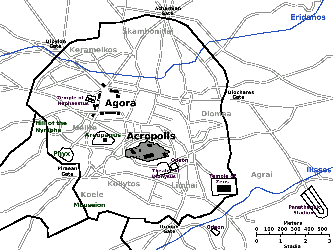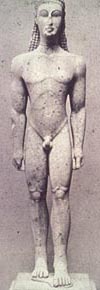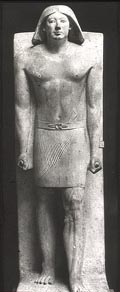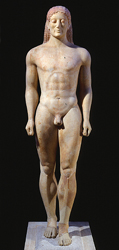
|

|
| Map of Egypt |
Map of Greece. |

|

|
| Dipylon Krater (Geometric style), from
the Dipylon Cemetary, Athens, 8th c. B.C. |
Dipylon Amphora (Geometric style), Athens,
c. 750 B.C. |

|

|
| Statuette of Horse, 8th c. B.C. (Geometric). |
Detail of Dipylon Krater (Prothesis). |

|

|
| Eleusis Amphora with Odysseus Blinding Polyphemos
(Orientalizing), middle of the 7th c. B.C. |
Detail of Orientalizing vase. |
| |

|
| |
Bronze Griffin, 7th c., Orientalizing. |

|

|
| Metropolitan Kouros, Early Archaic, c.
615- 590 B.C. |
Ranofer, Egyptian, Old Kingdom, c. 2500
B.C. |

|

|
| Detail of the head of Ranofer. |
Details of the head of the Metropolitan
Kouros. |
| |

|
| |
Kouros from Tenea, Middle Archaic, c. 575-50
B.C. |

|
|
| Kroisos (Kouros from Anavysos), c. 540-515
B.C., marble. 360 degree view of Kroisos. |
|









